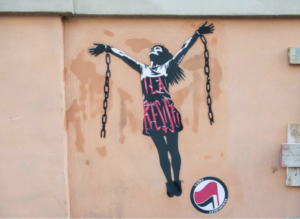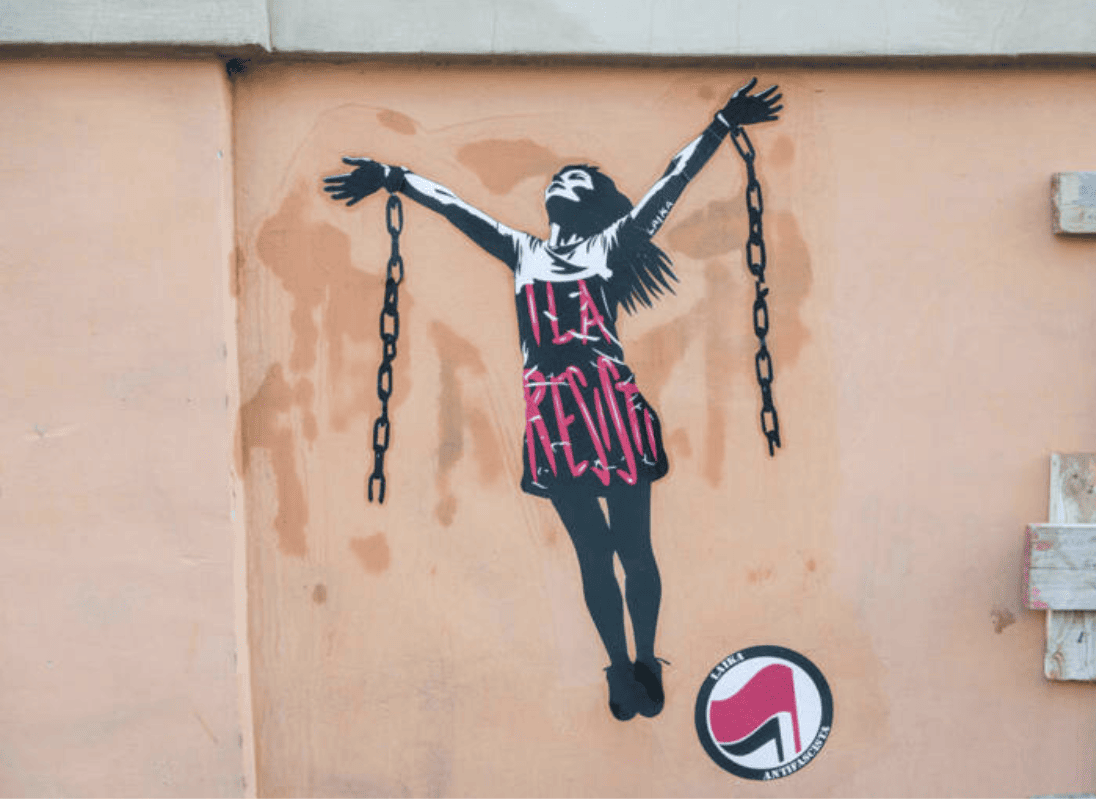Detained in Hungary, Italian teacher Ilaria Salis faces dire conditions. Accused of crimes she denies committing, questions arise about the safety of anti-fascist activism in Europe. Will Ilaria become another casualty in the battle against fascism?
On February 11, 2023, Ilaria Salis, a 39-year-old Italian teacher, was arrested in Budapest on charges of participating in four different assaults on fascist demonstrators during the week of the “Day of Honor.”
Every year, hundreds of fascists shamefully gather to commemorate the failed attempt by 30,000 Nazi soldiers in February 1945 to break through the Hungarian Soviet siege. They march through Hungary’s capital city undisturbed, except for the voices of anti-fascist protesters. Among them, in February 2023, was Ilaria Salis.
Ilaria, after being arrested while in a taxi, was taken to jail, marking the start of her descent into what she later described as a Dantesque Inferno: the Hungarian jails.
Living with rats, bedbugs, a lack of hygiene products and seven months without communication with the outside world, the Italian teacher didn’t even have access to a translation of legal documents. Conditions that show the regression of the rule of law in Hungary, now evident to all.
Of the four accusations, two were promptly dismissed as Salis wasn’t even on Hungarian territory when they occurred. Two remaining charges, however, are founded on recordings showing a group of individuals, whose faces remain obscured, assaulting two far-right men who later suffered minor injuries. Can these be deemed sufficient evidence to justify a potential eleven-year jail sentence ? I doubt it.
Ilaria has consistently denied involvement in any of the crimes she is accused of, reaffirming her innocence on January 29 when she was brought to the courtroom in chains. A picture of her was taken during the court session and published, quickly going viral within a few hours
The image shocked the world, compelling Prime Minister Giorgia Meloni’s government to address the case and explain how such brutal treatment could be inflicted upon one of its citizens without a strong institutional reaction.
While the shame of witnessing someone chained should be emphasized and condemned, the responses provided by various ministers revealed a lack of interest in the case. Mr. Salvini, the Deputy Prime Minister, expressed no concern for the conditions Salis had to endure. He instead told the press, “It’s absurd that someone like her would be a teacher,” while Francesco Lollobrigida, Minister of Agriculture, dismissively responded to press inquiries: “I haven’t seen the images,” referring to the images of Salis in chains.
The underlying reasons behind this attitude are highly political. Salis’ political stance is diametrically opposed to that of Meloni’s government and, while the Italian diplomatic corps is working to facilitate Ilaria’s return home, the lack of attention given to this case raises questions about the political and moral integrity of this government.
Salis herself, understandably expressed some concerns about being used as a means in political negotiations between Hungary and Italy. How can she place trust in two leaders that tolerates fascist marches while punishing those who dare to resist ?
Viktor Orban’s country is increasingly isolated on the European continent, and the Hungarian nationalist may exploit the case to his country’s advantage trying to gain Italy’s support in Brussels and although Orban denies his direct involvement in the case, it seems obvious that Salis’ detention is not simply a matter of legal proceedings gone awry. Political machinations seem to be at the base of Salis’ detention.
In Italy, Salis’ story is at the center of political debate, with the left accusing the government of resisting the repatriation of one of its citizens.
In order to avoid instrumentalisation I must make clear that Meloni’s government bears limited direct responsibility in this case. If it is true that the cabinet hasn’t reacted properly, showing the complete inadequacy of some of its members, the case actually conceals some technicalities. Indeed, Salis has not been convicted in Italy, and therefore she cannot be extradited and the only way for her to set foot on Italian soil again is to be expelled from Hungary after being convicted.
However, Ilaria’s predicament is not solely confined to Hungarian prisons; it originates from the seeds of fascism that still plague our world. In fact, Salis’ father, in an interview published on La Repubblica, expressed his concerns about his daughter’s potential release, given the flood of death threats she had received from far right organizations. Just last week, a mural appeared in Budapest depicting the woman being hanged.
If the backwardness of Viktor Orbán’s regime fails to surprise me, a growing concern occupies my thoughts: in the landscape of a rise in far-right parties’ support throughout Europe, has it become dangerous to scream the motto “SIAMO TUTTI ANTIFASCISTI” (“We are all antifascists”) ?

A mural appeared in Rome in support of Ilaria Salis – Taken from Il Riformista
Other posts that may interest you:
- The Chair: Sitting With Everyday Violence
- The Trouble with ‘Ecocide’
- Carbon dioxide removal – hit or miss?
- Local Victories for Turkish Opposition — A Sign of Hope?
- Are France and Japan a Mismatch Made in Heaven?
Discover more from The Sundial Press
Subscribe to get the latest posts sent to your email.





